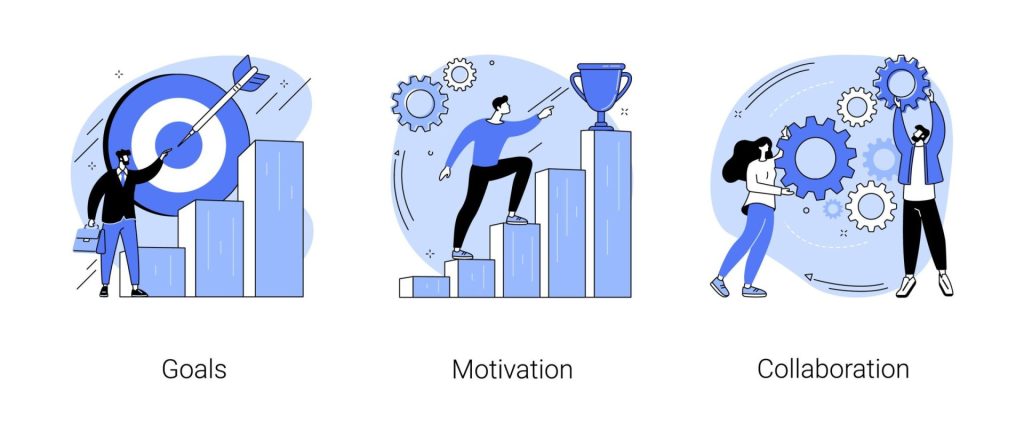How to be a better manager?
Learn how to be a better manager? with this comprehensive guide. Discover key qualities, effective communication, goal-setting, and more to lead your team to success.
The difference between a good team and a great team often boils down to management. Effective management is an art that can be learned and refined. This article aims to cover everything from setting clear goals to staying up-to-date on the latest management trends. So, let’s dive in!

To excel as a manager, focus on clear communication, goal-setting, and team motivation. Use the SMART framework to set achievable targets and keep your team aligned. Foster open dialogue to resolve conflicts and boost collaboration. Delegate tasks wisely, offer constructive feedback, and stay updated on the latest management trends. By balancing these key elements, you’ll create a productive work environment and lead your team to success.
TABLE OF CONTENT
What are the key qualities of a good manager?
A good manager embodies a mix of skills and traits, including empathy, communication, and adaptability. They are not just task-oriented but also people-focused, understanding that a motivated team is a productive team. Being a good listener and a decisive leader are also crucial qualities that set apart a good manager from the rest.
How can managers set clear goals and expectations for their teams?
Setting clear goals is the cornerstone of effective management. Use SMART goals (Specific, Measurable, Achievable, Relevant, Time-bound) to provide a clear path for your team. Transparency is key; make sure everyone knows not just the ‘what’ but also the ‘why’ behind each goal. Regular check-ins can help ensure that everyone is on the same page.
How can managers communicate effectively with their teams?
Communication is more than just talking; it’s about listening and understanding as well. Utilize multiple channels—emails, meetings, one-on-ones—to ensure that your message is heard. Encourage open dialogue and be approachable. Always keep in mind that communication is two-way.
How can managers motivate and engage their teams?
Motivation is the fuel that drives productivity. Celebrate all successes, no matter how modest they may be. Offer opportunities for professional development and growth. Most importantly, show trust in your team’s abilities; nothing disengages an employee faster than micromanagement.

How can managers delegate tasks effectively?
Delegation is not about offloading work but empowering your team. Understand the strengths and weaknesses of each team member and assign tasks accordingly. Make sure to provide all the resources and information needed to complete the task. And don’t forget to follow up without hovering.
How can managers provide constructive feedback?
Feedback is a tool for growth, not a weapon for criticism. Be specific in your feedback and offer actionable suggestions. Timing is crucial; provide feedback as close to the event as possible. And always remember, feedback is a two-way street; be open to receiving it as well.
How can managers build a positive and productive work environment?
A positive work environment fosters productivity and well-being. Encourage collaboration and teamwork. Make sure the workspace is comfortable and conducive to work. Implement policies that promote work-life balance and take steps to eliminate any form of discrimination or harassment.
How can managers manage conflict effectively?
Conflict is inevitable but manageable. Identify the root cause and address it, not just the symptoms. Use a structured approach to resolve conflicts, involving all parties in the solution. Sometimes, a neutral third party may be needed to mediate.

How can managers develop and coach their team members?
Development is a continuous process. Offer regular training sessions and encourage team members to upskill. Provide opportunities for mentorship within the team. Remember, a well-skilled team not only performs better but is also more engaged and satisfied.
How can managers support the well-being of their team members?
Well-being goes beyond physical health to include mental and emotional aspects. Offer flexibility in work hours or remote work options to help maintain a work-life balance. Encourage breaks and time-off to recharge. A well-rested team is a productive team.
How can managers stay up-to-date on the latest management trends and best practices?
The world of management is ever-evolving. Subscribe to industry journals, attend webinars, and network with other professionals. Being aware of the latest trends allows you to adapt and keep your team ahead of the curve.
What are the most important things that managers can do to help their teams succeed?
In summary, the most important things a manager can do are to communicate effectively, set clear goals, and provide the resources needed for the team to succeed. A manager should be a coach, a leader, and a facilitator, all rolled into one.

What are some common mistakes that managers make?
Micromanagement is one of the most frequent errors that managers make. This stifles creativity and demotivates team members. Another mistake is poor communication, which can lead to misunderstandings and decreased productivity. Ignoring employee feedback and failing to adapt are also pitfalls to avoid.
What are some tips for managers who are new to their roles?
New managers often feel overwhelmed. A good starting point is to build strong relationships with your team. Open communication is key. Don’t be afraid to delegate tasks; it not only lightens your load but also helps your team develop new skills. Always be open to learning and improving.
What are some resources that can help managers improve their skills and knowledge?
There are numerous resources available for managers looking to improve. Books like “The Five Dysfunctions of a Team” by Patrick Lencioni or “Drive” by Daniel Pink offer valuable insights. Online courses on platforms like Coursera or LinkedIn Learning are also beneficial. Don’t underestimate the value of mentorship; a seasoned manager can provide invaluable advice.
How can managers create a culture of innovation and creativity within their teams?
Creating a culture of innovation starts with encouraging open dialogue. Allow your team to share their ideas without judgment. Regular brainstorming sessions can also help. Most importantly, be willing to take calculated risks. Innovation can’t happen in a space where everyone is afraid to make mistakes.

How can managers foster diversity and inclusion in their teams?
Fostering diversity and inclusion is not just about hiring practices. It’s about creating an environment where all voices are heard and valued. Regular training sessions on unconscious bias and cultural sensitivity can go a long way. Also, make sure your team feels safe reporting any issues related to discrimination or harassment.
How can managers support remote and hybrid workers?
The rise of remote and hybrid work has posed new challenges for managers. Regular check-ins are crucial to gauge how your remote team members are doing. Utilize video conferencing tools to maintain a semblance of face-to-face interaction. Also, be mindful of time zones when scheduling meetings.
How can managers measure and track their own performance as managers?
Self-assessment is crucial in any managerial role. Key Performance Indicators (KPIs) can be useful in this regard. Regular feedback from your team can also provide valuable insights into your management style and effectiveness. Don’t shy away from self-improvement; it’s a continuous journey.
How can managers give and receive feedback from their own managers and peers?
Feedback is a two-way street. While you should be open to receiving constructive criticism, you should also know how to give it. Regular one-on-ones with your own manager can provide you with the feedback you need to improve. Peer reviews are also an excellent way to gauge your effectiveness.

How can managers stay motivated and engaged in their own work?
Staying motivated is often easier said than done, especially in a managerial role where you’re juggling multiple responsibilities. Setting short-term and long-term goals can help keep you focused. Also, don’t underestimate the power of a healthy work-life balance. Burnout is real, and it’s detrimental to both you and your team.
What are the most rewarding aspects of being a manager?
The most rewarding aspect of being a manager is seeing your team succeed. There’s a unique sense of fulfillment that comes from guiding a group of individuals towards a common goal. The personal and professional growth that you witness in your team members is also incredibly rewarding.
What are the most challenging aspects of being a manager?
Management is not without its challenges. Difficult conversations, whether about performance or interpersonal issues, are part and parcel of the role. The pressure to meet targets and expectations can also be overwhelming. However, the rewards often outweigh the challenges.

Conclusion
The journey to becoming a better manager is ongoing but rewarding. From understanding common mistakes to fostering a culture of innovation and diversity, effective management is a multifaceted endeavor. Remember, the most successful managers are those who are committed to continuous learning and improvement.
